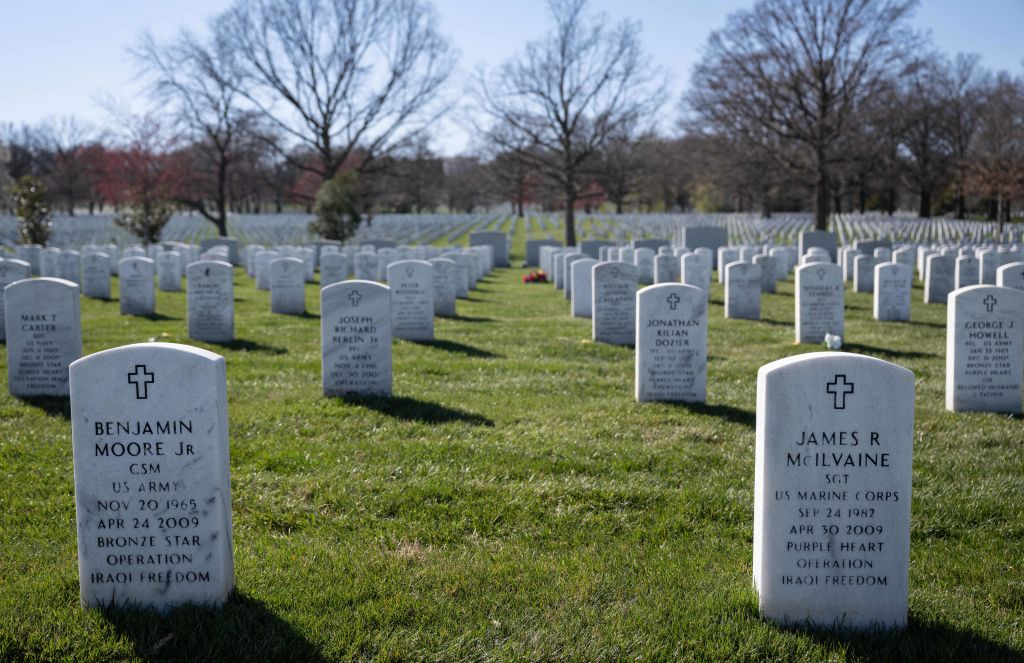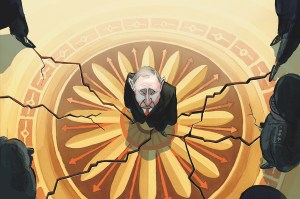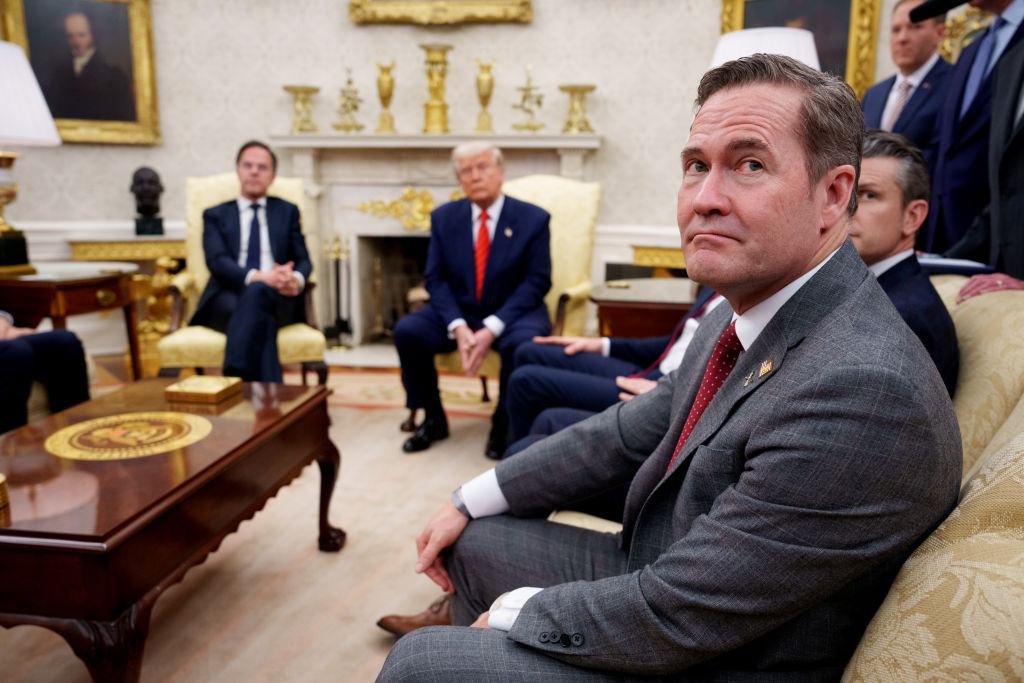Twenty-one years ago today, the United States committed its worst foreign-policy mistake in generations: invading Iraq to overthrow Saddam Hussein, the despot who ruled the Arab country with an iron fist for nearly a quarter-century. The entire operation was supposed to be a “cakewalk,” in which the mighty US military, stocked with the best technology and weapons the world had to offer, would pummel a decrepit Iraqi army that was hobbled by international sanctions for the better part of a decade.
The mood at the time was serious but stoic. Donald Rumsfeld, the US defense secretary, argued that the entire war wouldn’t last more than five months. Rumsfeld’s deputy, Paul Wolfowitz, testified to Congress that the invasion would be cheap due to Iraq’s substantial oil revenues, which would magically pay for the conflict. Ditto Richard Perle, the chair of the Pentagon’s Defense Policy Board, who said matter-of-factly that Iraq “can largely finance the reconstruction of their own country.”
Americans were led to believe that Saddam was a suicidal maniac who allied with al-Qaeda to kill Americans and clamoring for a nuclear weapon to explode in an American city. Vice President Dick Cheney hinted that Saddam was in cahoots with al-Qaeda despite what the US intelligence community assessed at the time — and President George W. Bush would spend months leading up to the war scaring the bejesus out of the American people. “Iraq could decide on any given day to provide a biological or chemical weapon to a terrorist group or individual terrorists,” Bush said during a speech in October 2002.
History demonstrated long ago how foolish those confident predictions and talking points were. With the exception of the Iraqi army’s collapse after a few weeks, all of them turned out to be sheer nonsense. Saddam gave up on his nuclear ambitions after the 1991 Gulf War, and as author Steven Coll amply explores in his new book, The Achilles Trap, Saddam’s regime was toying with international inspectors not because he had weapons of mass destruction but rather because he was paranoid about US spies infiltrating the inspectors’ ranks. The US spent trillions of dollars on the war and is still paying for it due to the tens of thousands of US troops who were grievously injured. The US invasion broke Iraq’s social construct: with the dictator now gone, the country’s oppressed majority Shia population were now free to take matters into its own hands, scooping up an ever greater amount of political power for itself.
If there were any winners coming out of the Iraq War, they were Iran and al-Qaeda. The Iranians were able to get rid of a man in Saddam Hussein who invaded them two decades earlier without firing a shot. Al-Qaeda, on the ropes after 9/11, was given a new lease on life and quickly established itself in the heart of the Middle East. US troops who were sent by their political leaders in Washington to overthrow a dictatorship spent the next years patrolling Iraqi cities like police officers and building a new political system from scratch. Today, Iraq is a democracy in the sense that elections are held and voting occurs. But the government in Baghdad is hobbled by systemic corruption, ineffective politicians and is in league with the very Iranian-backed Shia militias that send missiles and drones into the remaining US bases there.
As John F. Kennedy said after the Bay of Pigs fiasco in 1961, “Victory has a thousand fathers, but defeat is an orphan.” The same can be said about the Iraq War in 2003. Most of the war’s architects and cheerleaders refuse to own up to their poor judgment or admit their facile assumptions were wrong. To the extent there were oversights, they are always somebody else’s fault. The policymakers blame the intelligence analysts for shoddy work, whereas the intelligence analysts blame the policymakers for having ideological blinders on. Those like Paul Bremer who promoted De-Ba’athification in 2003 argue that the Iraqi army already fell apart, so why not go through with it? Others, such as John Bolton, insist that Bush’s decision to stick around after Saddam was deposed, not the invasion itself, was the sole error. Still others, such as Dick Cheney, continue to wallow in their delusions about the righteousness of the cause. Some have even sought to throw confusion into the entire debate by presenting ridiculous counterfactuals about what the world would look like if the US didn’t depose Saddam.
For the men and women in uniform who were sent into a war on false pretenses and had their lives permanently altered, you can only imagine how livid they must be after listening and reading these explanations.
Of course, we know how the Iraq war turned out. It was an unmitigated disaster, not only for the Americans deployed there but for the hundreds of thousands of Iraqis forced to endure the sectarian civil war, suicide bombings and rocket attacks that followed. The US invasion didn’t need to happen: Saddam was quite well contained; the Iraqi army was a pathetic shell that couldn’t do much damage in the region after losing two wars (the eight year-long war with Iran in the 1980s and the 1991 Gulf War); and Saddam’s principal objective at the time was to stay alive. A combination of post-9/11 fear mongering, hubris from the US policy elite and a dogmatic fascination with global primacy were the driving forces behind the Iraq folly.
The only thing more infuriating than the war itself is the total lack of accountability after it. The individuals who dreamed up the disaster or carried weight for it in the public domain continue to be feted as leading authorities worthy of our attention. Columnists at highly prestigious newspapers remain in their positions, dispensing advice about how the US should operate in the Middle East. Bush is at home in Texas, spending his time painting, giving speeches and basking in a post-presidential comeback. John Bolton was promoted by Donald Trump as national security advisor and remains a constant fixture on television. Condoleezza Rice is the director at the Hoover Institution at Stanford University. Others have gone back into the think-tank world or have churned out books, eager to give us lectures about what the US is doing wrong in this or that part of the world.
Please, spare us the sermons.


























Leave a Reply